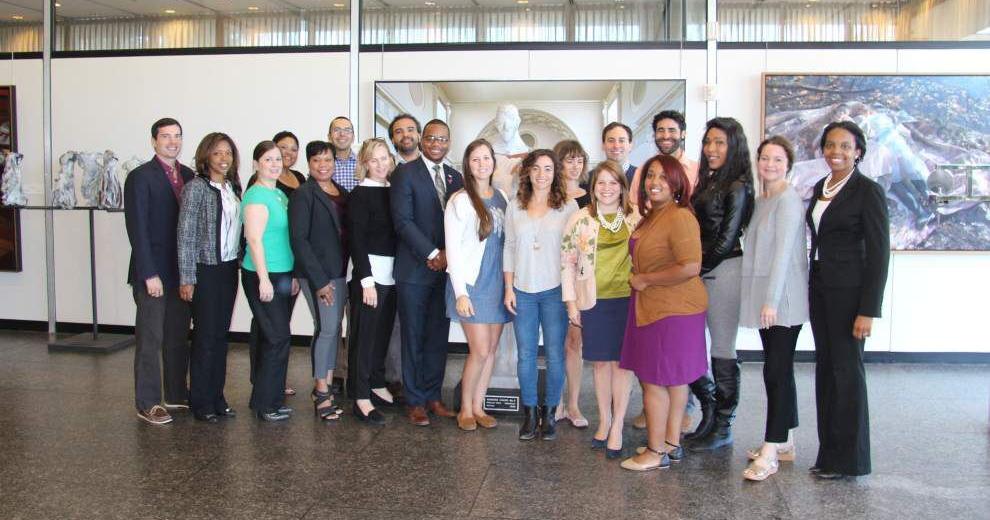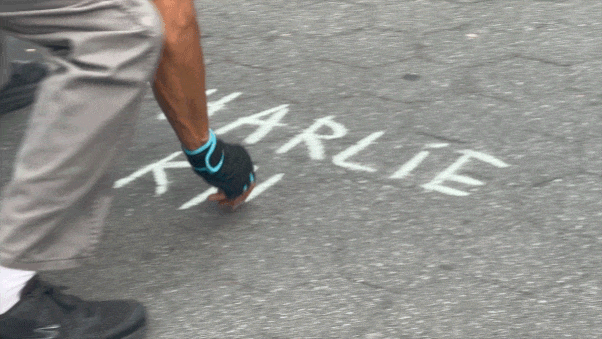
Would you vote for a White candidate rather than an American Indian candidate?
It seems New Orleans City Council District C candidate Kelsey Foster thinks so.
Foster, former executive director of the Algiers Economic Development Foundation, wants to replace incumbent City Council member Freddie King III. She’s not alone. So do the Green Party’s Eliot Barron and No Party candidate Jackson Kimbrell, who has the support of the Democratic Socialists of America.
King is Black.
Barron is White.
Kimbrell is White.
Foster is White.
But she hasn’t always been White. Or has she?
She’s identified herself as American Indian on her Louisiana voter registration until July when it was time to qualify to campaign for office this year.
When I talked with her about the midsummer registration identification change at a recent candidates forum, she shook her head and, in my ears, I heard her say it was much of nothing. I’ll let you decide.
“My dad’s family has Indigenous roots,” she explained to me. “It’s not something that I would ever normally (write). I don’t why I put that in whatever year I registered that way. White is the more accurate description. That’s why I changed it….
“If I had noticed that earlier I would have changed it earlier.”
Was it always American Indian? “No. It was White. At some point, I changed it. And I changed it back…..It’s not inaccurate. It’s just not what I would say is most accurate.”
Some people might call that a white lie, a fabrication — or a lie.
Foster told me that she changed her registration “as soon as I could.” The changed happened when she was qualifying, confirming the accuracy of her registration. Though she can’t remember when her registration was changed to American Indian, she said “20-year-old Kelsey was feeling different that day.”
Foster hasn’t been 20 in quite some time.
Her dad’s people are from western Pennsylvania, so her Indigenous roots trace to some tribe she can’t remember. She said she’s not a federally-recognized American Indian, she doesn’t have an official tribe card and she wasn’t eligible for, and didn’t take advantage of, American Indian benefits.
I’m Black. Or African American. Legend and lore have it that my ancestry includes Indigenous blood. But I don’t claim it.
To claim to be Indigenous would be disingenuous.
I have Indigenous friends who are card-carrying tribe members. There’s no one federal definition, though being a member of a federally-recognized tribe is a good starting place. For the record, that type of designation is a political one, not racial.
Well before Christopher Columbus sailed and “discovered” the Americas in 1492 there were people living in what today we call Canada and the United States of America.
Population estimates are quite varied. Some estimate that there were about 2.5 million people. Some say it might’ve been as many as 5 or 7 million. Still others insist that the number was more than 15 million, and even closer to 20 million.
When someone is eligible to register, the Clerk of Courts in that person’s parish counts on each person to be honest and truthful. They trust that the name you’re recording is your real name. They trust that the address you’re providing is your real address. They trust that the gender you’re providing is accurate. They trust that the racial identification you’re providing is a truthful answer.
Parish clerks don’t have enforcement staffs. They don’t have enough people to check each voter registration to confirm that each entry is accurate.
These things sometimes come to light when someone runs for political office. Any political advisor worth his or her value of whatever level knows that two of the most important considerations before launching a campaign must be ensuring that you’ve paid your taxes and that your home address is within the district where you intend to run, when that is required.
Race played a role in our nation’s politics for far too long. In the early days after our nation’s founding only White male property owners could vote. Imagine if that were the case today. For starters, what would that mean for all the White men who lease or rent? Thank goodness we are far beyond THAT.
Race definitely plays a role in today’s politics in Louisiana and across the nation, but it isn’t a determining factor whether someone can run for public office.
Race is not a factor for qualifying. Nor should it be. But I think registrations should be accurate, a fact, truthful.
We evaluate political candidates on a number of factors, including honesty and integrity.



